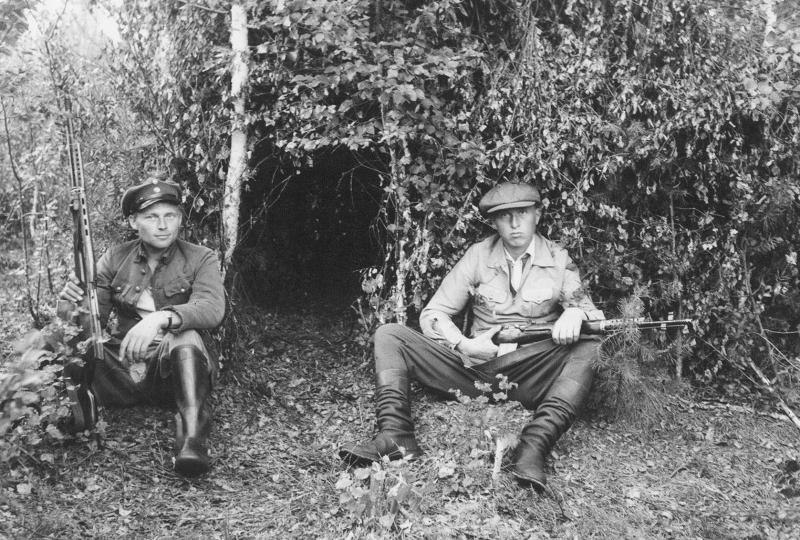Much of Erelt's interview mirrored my notes from eight years earlier. FN's meetings with Estonian statesman Jaan Tõnisson in 1941 en route to Siberia, later with Soviet leader Nikita Khrustchev were a source of pride for the former forest brother. FN escaped in 1945. According to my notes it took two months and 27 days for him to make it back to Estonia, now firmly occupied.
FN also described being shot during an operation against the Soviets in 1949, accounting for the bullet still in his head. Perhaps it was the cognac, but at that time FN never revealed what he told Erelt – in April 1949 he was en route to Hiiumaa, to meet Hirmus Ants (see pt I), Hiiumaa was the legend's territory. However, FN's escape from the hospital, thanks to an Estonian nurse, was described exactly as I found in my earlier notes. Both Erelt's interview and my notes confirm that “eye-doctor”, ophthalmologist Dr. Schotter, who tended to FN's head wounds and the vision loss that accompanied being shot in the head, informed the Soviet security organs that the alleged Black Captain was in hospital. Alleged, for FN proudly told the doctor, according to Erelt, “do you know who you are treating, I am the Black Captain.” A foolish statement for anyone to make at that time, undermining, again, FN's credibility. However, FN was able to escape from the hospital, descending from the second floor via a gutter downspout, all this with a bullet in his head and vision loss.
The alleged Black Captain did not remain a free fugitive for long, my notes indicate his arrest in October of 1949, a date not found in Erelt's interview.
After FN's arrest by the KGB, – six years after the end of warfare on Estonian soil – , where he was doped into unconsciousness at a birthday party, waking up in the infamous Pagari street jail complex, he was sent to Siberia for th second time. He told me that he was interrogated for one and a half years, during which time he was kept in solitary confinement, the only human contact was with his interrogators. He claimed in 1990 that he almost lost the ability to speak – either Estonian or Russian, due to his determination not to answer any questions, betray his brothers in arms and those who assisted him.
He was sentenced under ∞ 58. 1,2,4,6,8,10,12 of the Soviet penal code, accounting for treason, terror, agitation, undermining the state, espionage and a peculiar category, diversion. The penalty – death. FN told me he spent 57 days on the Soviet version of Death Row, after which his sentence was commuted to the infamous 25+5+5: 25 years in Siberia, working in the mines, 5 years forced settlement away from Estonia, then 5 years of monitoring, the Soviet form of parole in Estonia. FN told me that on January 12th 1950 the death penalty was abolished in the Soviet Union. Perhaps legally, but not in practical application, as later cases were to prove. FN also added then that the day after, January 13, 1950 he would have been executed, according to Boris Kumm, Soviet Estonia's Commissar for State Security and the chief architect of Stalinist-era terror and repression in the country.
Thanks to Khrushchev's amnesty in 1965 FN was able to return to Estonia much earlier than his sentence called for. FN claimed that happened due to a personal appeal sent to the Soviet leader in 1963. This resulted in an invitation to visit the Soviet leader and discuss the issue personally (Did that happen to everyone? May be another question of credibility, as many petitioned the Soviet leadership, and certainly not all were granted an audience). During this face-to-face meeting he promised Khrushchev that he would never take up arms against the Soviets again. In retrospect, again a little far-fetched.
As is the claim that FN led a group of 50-60 forest brothers. At the time, especially after the 1949 deportations, such a large group would find it extremely difficult to remain hidden, much less find adequate food and shelter in the Võrumaa forests, as the surrounding farms were either abandoned due to forced collectivization or deportation. Hence much of FN's claims must be taken with a grain of salt.
(To be continued)
Tõnu Naelapea, Toronto




